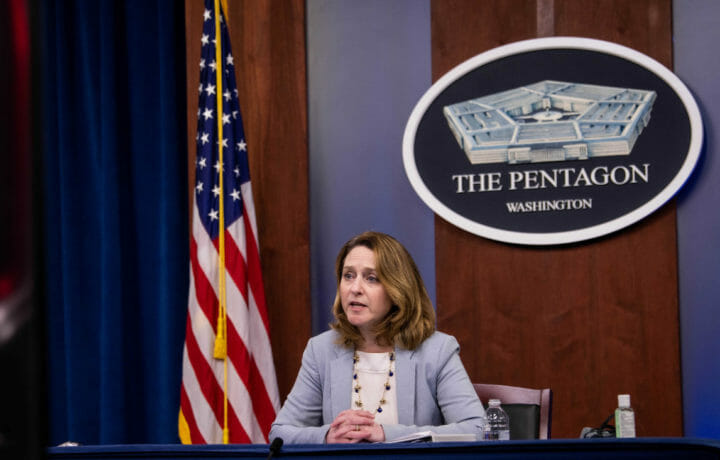Mid-September, the Department of Defense updated its Special Access Programs (SAP) authorization process for political appointees, according to the Washington Times. The adjustment ascribed to a September 20 memorandum from Deputy Defense Secretary Kathleen Hicks, known for her transformation efforts, removes the requirement for the five-question pre-screening questionnaire used as part of the program access requests (PAR), for “Senate-confirmed political appointees, members of the House and Senate, professional staff of the congressional defense and oversight committee, and senior White House officials.”
SAP PRE-Screen questionnaire
The questionnaire, drawn from DoD Manual, (5205.07 Vol2, October 30, 2020, page 17) asks five questions, for which any “yes” answer requires digging in and sorting out.
- Foreign Affections: Is any of your immediate family a citizen of a country other than the United States or do you or anyone in your immediate family claim dual citizenship?
- Foreign Associations/Assets:
- Foreign Associations: Do you, your spouse or cohabitants have any continuing contact with citizens or dual citizens of a country other than the United States? Reporting is not required if contact with a foreign national only occurs while in the performance of official United States Government business
- Foreign Assets: Do you, your spouse, and/or cohabitant have any financial interest or assets in a country other than the United States?
- Other than official government foreign travel: Have you visited any foreign countries since your last completed investigation?
- Personal Conduct: Has your clearance or access been suspended, denied, or revoked; or have you been arrested since your last completed investigation?
- Financial Responsibility: Have you had any bills referred to a collection agency, had your wages garnished, have any tax liens against you or filed for bankruptcy since your last completed investigation?
A Gentlemen’s Agreement on SAP Access
Pentagon spokesperson Eric Pahon explained to the Washington Times that Hicks’ memorandum “formally articulates a long-standing DoD practice of not requiring Special Access Program Prescreening Questionnaires from certain senior U.S. government officials. These include senior-level appointees in the White House, members of Congress, and Senate-confirmed presidential appointees.”
The topic of members of congress and eligibility to access classified information ebbs and flows with the political winds. While many senior staff members on key national security committees in congress obtain security clearances, the actual elected officials themselves do not. As we’ve covered previously, however, knowing the rules hasn’t precluded congressional staff from sharing government secrets in the past. In 2018 a former director of security for the Senate Select Committee on Intelligence (SSCI) was indicted for sharing classified information with four reporters, one of whom he had a three-year romance with.
The questionnaire asks the same information which is required to be self-reported through the SEAD 3 process, and which the DoD hopes to uncover itself sooner through the Continuous Vetting program. But government officials who aren’t issued clearance eligibility through the formal security clearance background investigation process would also not find themselves enrolled in CV, or likely to start self-reporting their next meeting with a foreign national.




